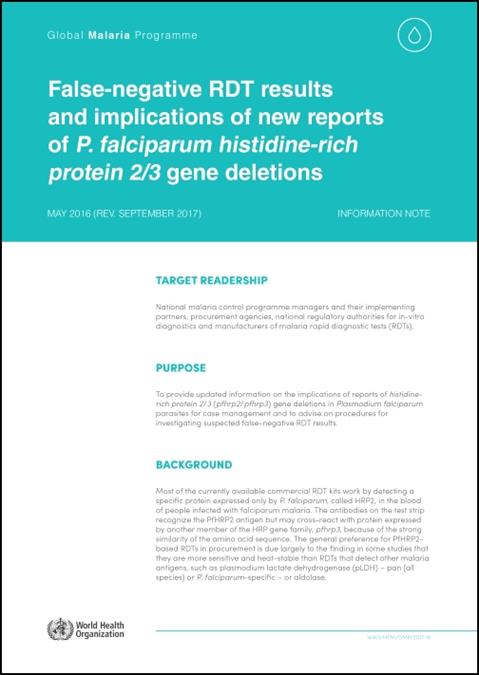False-negative RDT results and implications of new reports of P. falciparum histidine-rich protein 2/3 gene deletions
(rev. July 2019)
1 September 2017
| Information note

Overview
In some countries, increasing levels of histidine-rich protein 2 and 3 (hrp2/3) gene deletions threaten the ability of health providers to diagnose and appropriately treat people infected with P. falciparum malaria. Although the prevalence of hrp2/3 gene deletions in most countries with high malaria transmission remains low, further monitoring is required.
This information note is intended for national malaria control programme managers and their implementing partners, procurement agencies, national regulatory authorities and manufacturers. It provides specific guidance on the implications of hrp2/3 gene deletions for case management and advises on procedures for investigating suspected false-negative RDT results.
WHO Team
Number of pages
11
Reference numbers
WHO Reference Number: WHO/HTM/GMP/2017.18
